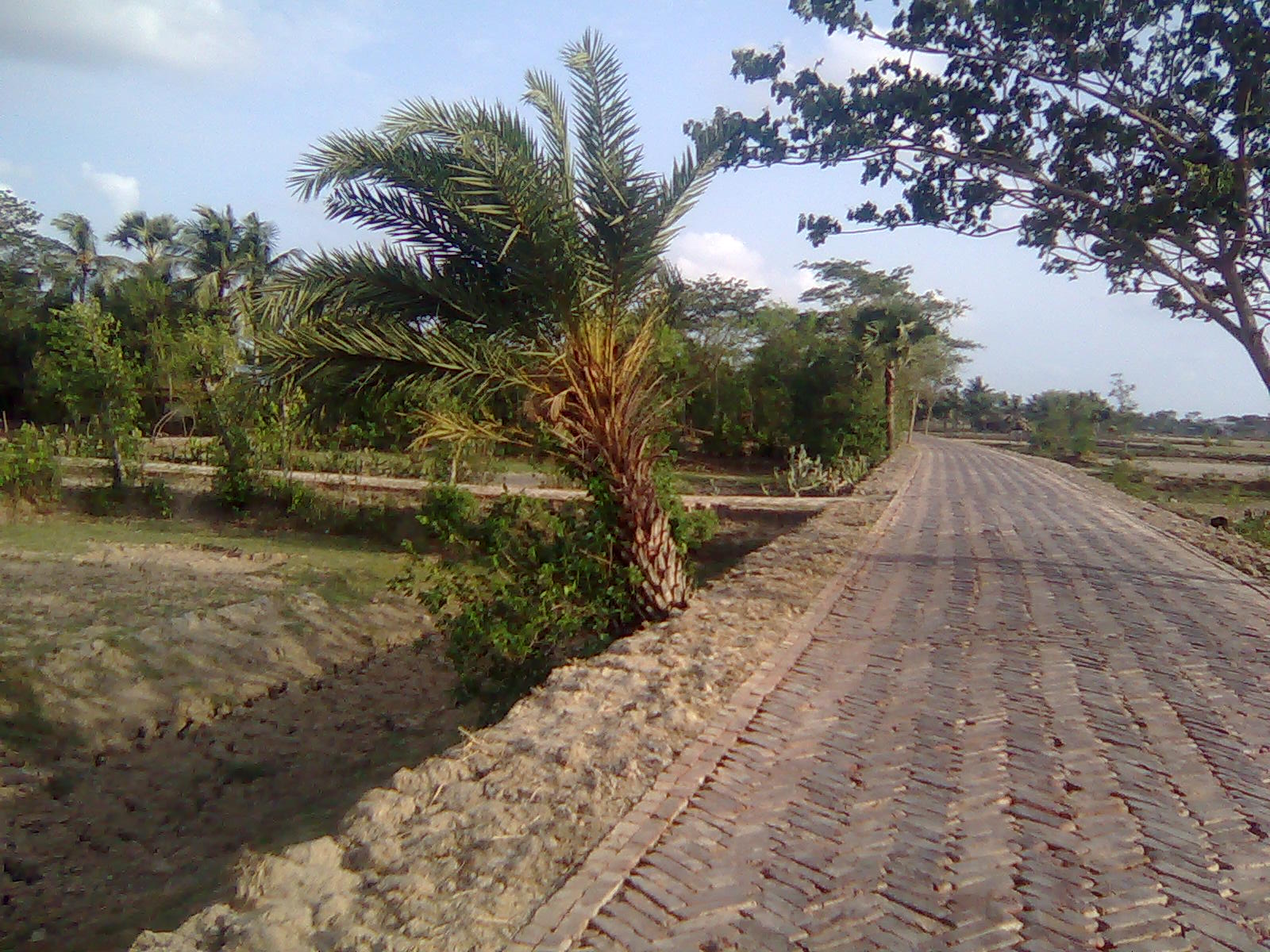|
Roads Service Northern Ireland
Department for Infrastructure Roads or DfI Roads (formerly Transport NI, and the Roads Service) is the public body responsible for the upkeep and maintenance of highways and roads in Northern Ireland in the United Kingdom. It is an executive agency of the Department for Infrastructure. The agency has over 2,000 staff and as such employs more people than its parent department. In 2010-11 the agency was responsible for just over 25,000 kilometres (15,534 miles) of public roads, approximately 9,500 kilometres (5,903 miles) of footways, 5,800 bridges, 265,000 streetlights and 370 public car parks. DfI Roads was part of the Department of the Environment An environmental ministry is a national or subnational government agency politically responsible for the environment and/or natural resources. Various other names are commonly used to identify such agencies, such as Ministry of the Environment, ... but was transferred to the then Department for Regional Development (DRD) upo ... [...More Info...] [...Related Items...] OR: [Wikipedia] [Google] [Baidu] |
Northern Ireland
Northern Ireland ( ga, Tuaisceart Éireann ; sco, label= Ulster-Scots, Norlin Airlann) is a part of the United Kingdom, situated in the north-east of the island of Ireland, that is variously described as a country, province or region. Northern Ireland shares an open border to the south and west with the Republic of Ireland. In 2021, its population was 1,903,100, making up about 27% of Ireland's population and about 3% of the UK's population. The Northern Ireland Assembly (colloquially referred to as Stormont after its location), established by the Northern Ireland Act 1998, holds responsibility for a range of devolved policy matters, while other areas are reserved for the UK Government. Northern Ireland cooperates with the Republic of Ireland in several areas. Northern Ireland was created in May 1921, when Ireland was partitioned by the Government of Ireland Act 1920, creating a devolved government for the six northeastern counties. As was intended, Northern Ireland ... [...More Info...] [...Related Items...] OR: [Wikipedia] [Google] [Baidu] |
Department For Infrastructure (Northern Ireland)
The Department for Infrastructure (DfI, ga, An Roinn Bonneagair; Ulster-Scots: ''Depairment fur Infrastructure'') is a devolved Northern Ireland government department in the Northern Ireland Executive. Up until May 2016, the department was called the Department for Regional Development. Aim DfI's overall aim is to "improve quality of life by securing transport and water infrastructure and shaping the region's long-term strategic development". Responsibilities The department's main responsibilities include * regional strategic planning and development; * transport strategy and sustainable transport; * public roads; * public transport; * air and sea ports; * water and sewerage services. Two transport matters are reserved to Westminster and are therefore not devolved: * navigation (including merchant shipping) * civil aviation DfI's main counterparts in the United Kingdom Government are: * the Department for Transport; * the Department for Environment, Food and Rural A ... [...More Info...] [...Related Items...] OR: [Wikipedia] [Google] [Baidu] |
Department Of The Environment
An environmental ministry is a national or subnational government agency politically responsible for the environment and/or natural resources. Various other names are commonly used to identify such agencies, such as Ministry of the Environment, Department of the Environment, Department for the Environment, Department of Environmental Protection, or Department of Natural Resources. Such agencies typically address environmental concerns such as the maintenance of environmental quality, nature preserves, the sustained use of natural resources, and prevention of pollution or contamination of the natural environment. Following is a list of environmental ministries by country: Algeria * Ministry of Water Resources and Environment Argentina * Ministry of the Environment and Sustainable Development ** National Parks Administration Australia ;Federal * Department of Agriculture, Water and the Environment ;States * Department for Environment and Water (South Australia) * Departme ... [...More Info...] [...Related Items...] OR: [Wikipedia] [Google] [Baidu] |
Northern Ireland Executive
The Northern Ireland Executive is the devolved government of Northern Ireland, an administrative branch of the legislature – the Northern Ireland Assembly. It is answerable to the assembly and was initially established according to the terms of the Northern Ireland Act 1998, which followed the Good Friday Agreement (or Belfast Agreement). The executive is referred to in the legislation as the Executive Committee of the assembly and is an example of consociationalist ("power-sharing") government. The Northern Ireland Executive consists of the First Minister and deputy First Minister and various ministers with individual portfolios and remits. The main assembly parties appoint most ministers in the executive, except for the Minister of Justice who is elected by a cross-community vote. It is one of three devolved governments in the United Kingdom, the others being the Scottish and Welsh governments. In January 2017, the then deputy First Minister Martin McGuinness resigne ... [...More Info...] [...Related Items...] OR: [Wikipedia] [Google] [Baidu] |
Economy Of Northern Ireland
The economy of Northern Ireland is the smallest of the four constituents of the United Kingdom and the smaller of the two jurisdictions on the island of Ireland. At the time of the Partition of Ireland in 1922, and for a period afterwards, Northern Ireland had a predominantly industrial economy, most notably in shipbuilding, rope manufacture and textiles, but most heavy industry has since been replaced by services. Northern Ireland's economy has strong links to the economies of the Republic of Ireland and Great Britain. Overview Output and economic growth Northern Ireland has the smallest economy of any of the twelve ITL 1 regions of the United Kingdom, at £27.4bn (€37.8bn). However, this is partly because Northern Ireland has the smallest population; at £15,200 (€21,000) Northern Ireland has a greater GDP per capita than both North East England and Wales. Rural areas including the North West are particularly deprived. It suffers from the highest unemployment and high ... [...More Info...] [...Related Items...] OR: [Wikipedia] [Google] [Baidu] |
Road Transport In Northern Ireland
A road is a linear way for the conveyance of traffic that mostly has an improved surface for use by vehicles (motorized and non-motorized) and pedestrians. Unlike streets, the main function of roads is transportation. There are many types of roads, including parkways, avenues, controlled-access highways (freeways, motorways, and expressways), tollways, interstates, highways, thoroughfares, and local roads. The primary features of roads include lanes, sidewalks (pavement), roadways (carriageways), medians, shoulders, verges, bike paths (cycle paths), and shared-use paths. Definitions Historically many roads were simply recognizable routes without any formal construction or some maintenance. The Organization for Economic Co-operation and Development (OECD) defines a road as "a line of communication (travelled way) using a stabilized base other than rails or air strips open to public traffic, primarily for the use of road motor vehicles running on their own wheels", which i ... [...More Info...] [...Related Items...] OR: [Wikipedia] [Google] [Baidu] |
Road Authorities
A road is a linear way for the conveyance of traffic that mostly has an improved surface for use by vehicles (motorized and non-motorized) and pedestrians. Unlike streets, the main function of roads is transportation. There are many types of roads, including parkways, avenues, controlled-access highways (freeways, motorways, and expressways), tollways, interstates, highways, thoroughfares, and local roads. The primary features of roads include lanes, sidewalks (pavement), roadways (carriageways), medians, shoulders, verges, bike paths (cycle paths), and shared-use paths. Definitions Historically many roads were simply recognizable routes without any formal construction or some maintenance. The Organization for Economic Co-operation and Development (OECD) defines a road as "a line of communication (travelled way) using a stabilized base other than rails or air strips open to public traffic, primarily for the use of road motor vehicles running on their own wheels", whi ... [...More Info...] [...Related Items...] OR: [Wikipedia] [Google] [Baidu] |





